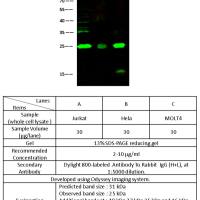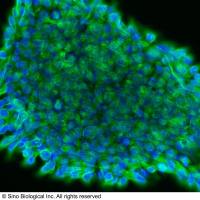Tissue-Specific Ablation of Tsc1 in Pancreatic Beta-Cells
互联网
823
Tuberous sclerosis complex 1 (TSC1) is a tumor suppressor that associates with TSC2 to inactivate Rheb, thereby inhibiting signaling by the mammalian target of rapamycin (mTOR) complex 1 (mTORC1). mTORC1 stimulates cell growth by promoting anabolic cellular processes, such as translation, in response to growth factors and nutrient signals. In order to test roles for TSC1 and mTORC1 in β-cell function, we utilized Rip2 /Cre to generate mice lacking Tsc1 in pancreatic β cells (Rip-Tsc1 cKO mice). While obesity developed due to hypothalamic Tsc1 excision in older Rip-Tsc1 cKO animals, young animals displayed a prominent gain-of-function β-cell phenotype prior to the onset of obesity. The young Rip-Tsc1 cKO animals displayed improved glycemic control due to mTOR-mediated enhancement of β-cell size and insulin production, but not β-cell number consistent with an important anabolic role for mTOR in β-cell function. Thus, mTOR promulgates a dominant signal to promote β-cell/islet size and insulin production, and this pathway is crucial for β-cell function and glycemic control.
Here, we describe the methods of analyzing tissue-specific ablation of Tsc1 in pancreatic β cells.









